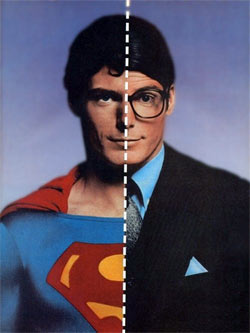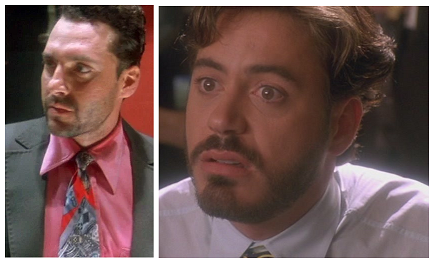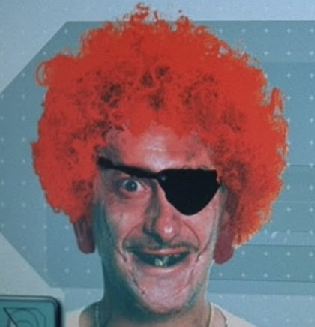Prosopagnosia: Life as a citizen of Metropolis
“We just had this new guy guy start at work today, Clark. I swear, he is the spitting image Superman!”
Katie stares back at me for a second before letting out a giggle. “You know he probably doesn’t, right?”
I laugh too. She’s probably right. I’m always getting mixed up and confusing people for one another. I still cringe thinking about the time, age ten, I ran up to a stranger in the street mistaking them for my grandmother. Talk about embarrassing!
It’s not that uncommon an experience among prosopagnosics like myself, heck I should probably be thankful my case is as mild as it is. Aside from the aforementioned slip-up, I’ve never really failed to identify close family, whereas there are those whose Face Blindness (as it’s more commonly known) is such they they can’t even recognise their own children when a photo is handed to them.
Very little is known about face blindness, and it comes in such a wide range of degrees that the true breadth of it (like faces in our own vision) can be hard to grasp. The widespread nature of the condition has only become apparent this last century, not helped by the fact most of us don’t realise we’re any different till later in life.

I grew up completely oblivious of my deficiency, and I suspect that’s due to the much smaller world of a child. You have one teacher, a couple dozen classmates, and maybe a few after-school activities, again with a limited pool of people. The scope for mistakes is much smaller, and consequences relatively minor. Even if there is some signs of problems, they tend to get swept under the rug, or excused some other way. You’re just inattentive, or just shy. No-one seems to consider there’s something bigger at work, that something else is dictating the nature of all your social interactions past, present, and future.
Next came high school, and that’s when the cracks really started to show. Now I had dozens of teachers, hundreds of classmates, and I was expected to be able to recognise them not only in a solitary fixed class room setting, but be able to recognise and interact with them in the hallways and common areas, against a sea of over a thousand other, barely distinguishable faces? Impossible!
Adding to the unfairness of being thrown into an environment in which, worldwide, people like myself struggle in, I also had the cruel misfortune of attending a British school, one of the few school systems that tend to mandate a strict uniform policy.
Clothing choices and hair styles, both heavily regulated by uniform policies, are lifelines to people like me, they are the best, and for many people only, way to visually identify a person you might know. Once they’re up-close and engaged in conversation, other techniques become available (voice and demeanour, for example) but by that point, you may have already inadvertently insulted them, or ignored them completely and missed out on a social opportunity. Uniforms are a barrier to social interaction and development, as such they are (inadvertently, of course) a form of discrimination towards those of us with this difficulty.
I managed to make a few friends at school, and after leaving, a great many more. Reflecting on it now, many of them are quite visually distinct, making them easier to identify, and I can’t help but wonder how much of this was a subconscious bias towards people that my mind could more easily “parse”.
There are those who worry that their face blindness may be interpreted as “arrogance – an aloof lack of interest in others” ↗ yet for me, it may well have contributed to those exact same traits; how should I be expected to take an interest in people seemingly so uninteresting they leave no lasting impression upon me?
It wasn’t until I met Katie that I became consciously aware of my difficulties; they had simply been how things always were, and if you don’t know any better, how do you know that something is amiss? As we fell into an evening routine of watching TV together, she expression confusion that I wasn’t picking up on celebrity cameos in our favourite shows, or regularly getting certain actors confused for one another. I originally argued that I wasn’t that familiar with many of them, and am not really interested in celebrity culture, but it became more and more apparent that I had difficulty recognising many of them outside of their iconic shows and outfits. (Also, as in the previous paragraph, I think it’s likely my inability to distinguish celebrities may have aided in my apathy towards them).

I’d always been a fan of animated shows (cartoons, anime, and the like) and games, and I’m starting to consider if this may be in part due to characters been often more visually distinct from each other, making them more easily identifiable, and with more exaggerated features. The lack of an actor’s face also appears to have honed my most effective way of telling them apart; their voice. Even when watching live action films and television, when I recognise one of the performers, it’s almost always due to their voice first, and appearance second.
For a couple of years, I simply went along with the explanation that I was just “bad with faces”, that is, until I came across the following article, “Prosopagnosia: How face blindness means I can't recognise my mum” ↗ and suddenly I could put a term to what I was experiencing. It also gave possibly the best first-hand description of the condition:
“To me, a face is like a dream. It's incredibly vivid in the moment, but it drifts apart seconds after I look away until all that's left are the disjointed features and a vague memory of how it made me feel.” ~ Evie Prichard.
Reading Evie’s account, it made me thankful for how well I can recognise people; I can at the very least pick members of my immediate family out of a crowd with minimal issue. My problems are usually with people that I’m less familiar with, and it’s often more to do with false positives rather than missing people altogether. Like with Clark Kent from work, or that encounter with the woman who wasn’t my grandmother, I’m prone to mistaking strangers for people that I may know.
Being aware of how liable I am to making this mistake, I often fall back on a coping method where, if I feel like I recognise someone out and about, I try and put myself in their line of sight, and wait for a wave or smile of recognition. If they don’t react, then it’s probably a stranger and I walk by as if nothing had happened. It’s not foolproof, as it does rely on them seeing me, and making the first move, but it’s the best I have.
The last big revelation for me came a couple of years ago when, likely thanks to the increased awareness and coverage in the press, my father brought up the topic of his own faceblindness one family dinner time. I hadn’t mentioned this to my parents, so to find out, seemingly out of nowhere, that it was an inherited trait was a surprise, but a nice one. There had even then been a voice in the back of my mind telling me I was imagining it, that I was just inattentive, so to be given proof that it was in my genes was very comforting, and I feel a lot more relaxed about explaining it to people.
Being more relaxed about it still doesn’t make it any less awkward when running into someone and not having the faintest idea who they might be though, and I’m terrified of one day being put in front of a sketch artist for whatever reason, as all they’re likely to get out of me is their hairstyle, and maybe a vague descriptor of ‘round’ or ‘square’ for their overall face shape. I can only hope that my would-be assailant is in possession of an eyepatch, a broken nose and banana shaped scars across both cheeks if they’re to have any luck catching them on my description alone.

Weirdly, just because I can’t recognise a face, I can differentiate individual elements, hence why I can still recognise someone sporting a distinct or unusual feature. It’s just that identifying strangers by features in public is like being asked to distinguish between different maple trees in a field; sure they each have a unique shape and branch spread, but can you bring a specific one to mind? Could you identify one from a photo, with all background details removed?
If you were to put two people next to each other, I could probably tell you which of the pair has, for example, the larger nose, the wider chin, the thicker lips, and so on. I’d probably even be able to handle a game of Guess Who, with all the drawings replaced with photographs of real people.
Maybe that’s it, I just need to get a photo of Clark, and put it up against a picture of Superman. I’m sure once I look at them side-by-side I could see that they really aren’t that similar after all.
«Back to "Writing"»
